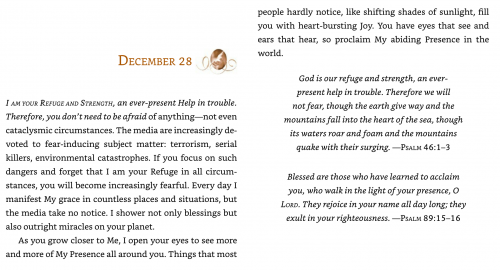
Standing Still, Moving the World
Tuesday, December 29, 2020
Give me a place to stand, and I will move the whole earth with a lever. —Archimedes
Archimedes (c. 287–c. 212 BCE), a Greek philosopher and mathematician, noticed that if a lever was balanced in the correct place, on the correct fulcrum, it could move proportionally much greater weights than the force actually applied. He calculated that if the lever stretched far enough and the fulcrum point remained fixed close to Earth, even a small weight at one end would be able to move the world at the other.
The fixed point is our place to stand. It is a contemplative stance: steady, centered, poised, and rooted. To be contemplative, we have to have a slight distance from the world to allow time for withdrawal from business as usual, for contemplation, for going into what Jesus calls our “private room” (Matthew 6:6). However, in order for this not to become escapism, we have to remain quite close to the world at the same time, loving it, feeling its pain and its joy as our pain and our joy. The fulcrum, that balancing point, must be in the real world.
True contemplation, the great teachers say, is really quite down to earth and practical, and doesn’t require life in a monastery. It is, however, an utterly different way of receiving the moment, and therefore all of life. In order to have the capacity to “move the world,” we need some distancing and detachment from the diversionary nature and delusions of mass culture and the false self. Contemplation builds on the hard bottom of reality—as it is—without ideology, denial, or fantasy.
Unfortunately, many of us don’t have a fixed place to stand, a fulcrum of critical distance, and thus we cannot find our levers, or true “delivery systems,” as Bill Plotkin calls them, by which to move our world. [1] We do not have the steadiness of spiritual practice to keep our sight keen and alive. Those who have plenty of opportunities for spiritual practice—for example, those in monasteries—often don’t have an access point beyond religion itself from which to speak or to serve much of our world. We need a delivery system in the world to provide the capacity for building bridges and connecting the dots of life.
Some degree of inner experience is necessary for true spiritual authority, but we need some form of outer validation, too. We need to be taken seriously as competent and committed individuals and not just “inner” people. Could this perhaps be what Jesus means by being both “wise as serpents and innocent as doves” (Matthew 10:16)? God offers us quiet, contemplative eyes; and God also calls us to prophetic and critical involvement in the pain and sufferings of our world—both at the same time. This is so obvious in the life and ministry of Jesus that I wonder why it has not been taught as an essential part of Christianity.

Story from Our Community:
In the late 1980s, [I became] a volunteer at Mother Teresa’s Gift of Love [hospice] in Manhattan’s Greenwich Village. The twenty men being cared for there were suffering from AIDS. . . Always feeling like an outsider myself, with no medical experience I was now living among men who had been rejected by society. This difficult confrontation with illness, dying and death gave me a totally new perspective on the value of life. —Harvey V.